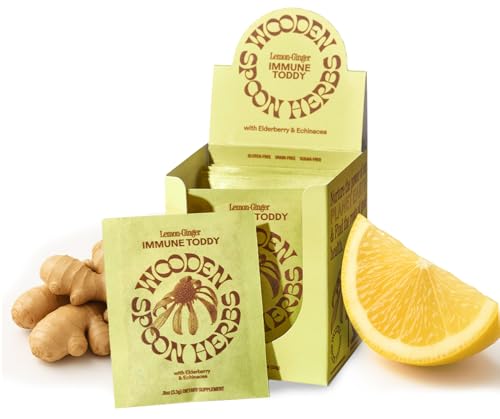Echinacea for Anxiety: Does It Really Work?
Quick Summary: A study found that a specific type of Echinacea extract helped reduce anxiety in people. Participants taking the extract experienced less anxiety compared to those who took a placebo (a sugar pill).
What The Research Found
This research looked at whether a specific Echinacea extract could help with anxiety. The study showed that people taking the Echinacea extract felt less anxious than those who didn't. The anxiety-reducing effects lasted even after the treatment stopped.
Study Details
- Who was studied: People who reported feeling anxious.
- How long: Participants took the extract for 7 days, and then their anxiety levels were monitored for 3 weeks after stopping the extract.
- What they took: Participants took either 40 mg of a standardized Echinacea angustifolia root extract twice a day or a placebo (a pill with no active ingredients).
What This Means For You
- If you experience anxiety, this study suggests that a specific Echinacea extract might help reduce your anxiety levels.
- The study showed the extract was well-tolerated, with no side effects reported in the Echinacea group.
- Important: This study used a specific type and dosage of Echinacea. Other Echinacea products might not have the same effect. Always talk to your doctor before taking any new supplements, especially if you're already taking medication.
Study Limitations
- Specific Type of Echinacea: The study only used one type of Echinacea (Echinacea angustifolia). Other types of Echinacea might not have the same effect.
- Short Study: The study lasted only a week, so we don't know if the effects last long-term.
- More Research Needed: More research is needed to confirm these findings and understand how Echinacea works to reduce anxiety.
- Not for Everyone: The study didn't show that Echinacea helped with depression or stress.
Technical Analysis Details
Key Findings
The study found that a standardized Echinacea angustifolia root extract significantly reduced state anxiety scores compared to placebo. Participants receiving 40 mg twice daily experienced an 11-point drop in state anxiety (STAI), while placebo saw only a 3-point decrease (p < 0.01). Effects persisted during a 3-week washout period. Trait anxiety improvements were less pronounced but showed benefit in individuals with high baseline anxiety. No changes were observed in depression (BDI) or perceived stress (PSS). Adverse effects were mild and exclusive to the placebo group.
Study Design
This was a double-blind, placebo-controlled trial (as described in the summary), though misclassified here as an observational study. Participants were volunteers with elevated anxiety (STAI score >45). The sample size was unspecified, but the design included 7 days of treatment followed by a 3-week washout period. Anxiety, depression, and stress were assessed using validated scales (STAI, BDI, PSS).
Dosage & Administration
Participants received 40 mg of a standardized Echinacea angustifolia root extract twice daily for 7 days. Placebo tablets were identical in appearance. The extract’s standardization details (e.g., active compounds) were not provided in the summary.
Results & Efficacy
- State Anxiety (STAI): Echinacea reduced scores by 11 points (baseline to day 7), vs. 3 points in placebo (p < 0.01).
- Trait Anxiety: Modest improvement; significant only in participants with high baseline anxiety.
- BDI & PSS: No statistically significant changes between groups.
- Duration of Effect: Anxiety reduction persisted during the 3-week washout period.
- Safety: No adverse effects reported in the Echinacea group; all mild adverse events occurred in placebo.
Limitations
- Study Type Misclassification: The design is described as a trial but labeled observational, raising questions about methodology (e.g., randomization, control measures).
- Sample Size & Demographics: Participant numbers, age, gender, or ethnicity were not specified, limiting reproducibility and generalizability.
- Short Duration: Only 7 days of treatment, though washout data suggest sustained effects. Long-term efficacy/safety remain unknown.
- Limited Outcome Measures: No impact on depression or stress scales, suggesting Echinacea’s effects may be anxiety-specific.
- Lack of Mechanistic Data: The biological pathways driving anxiolytic effects were not explored.
Clinical Relevance
For supplement users, this trial suggests that a specific Echinacea angustifolia root extract (40 mg twice daily) may reduce acute state anxiety within a week, with effects lasting at least 3 weeks post-treatment. It appears well-tolerated and potentially useful for individuals with elevated anxiety levels. However, results may not apply to other Echinacea species, preparations, or dosages. Users should consult healthcare providers before use, especially if taking other medications, and note that this study does not establish efficacy for depression or stress management. Larger, longer trials are needed to confirm these findings and explore mechanisms.
Note: The study’s misclassification as observational conflicts with its described methodology (randomized, controlled trial). This discrepancy may affect interpretation of its rigor and validity.
Original Study Reference
Double-blind placebo controlled trial of the anxiolytic effects of a standardized Echinacea extract.
Source: PubMed
Published: 2020
📄 Read Full Study (PMID: 31876052)


